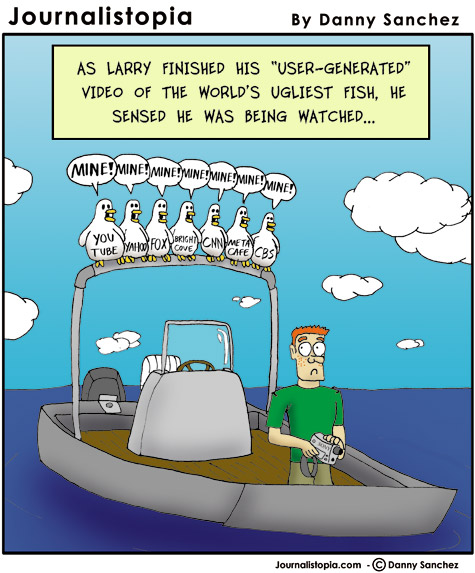Golden opportunity here: OrlandoSentinel.com is looking for a senior online editor!
Not only do you get to be part of an ambitious online newsroom initiative, you also get to work with really wonderful people, visit Disney World whenever you want and even get to tell yours truly what to do. I don’t do windows or foot rubs though.
The senior online editor oversees a team of producers that works on sports and breaking news, creates projects of all kinds and works to expand our local neighborhood efforts. There isn’t much “what’s an RSS feed?” going on here in Orlando. This is a Kool-Aid slurpin’ newsroom.
So all of you experienced online news gurus, check out the information below and contact AME Anthony Moor at amoorATorlandosentinel.com if you’re interested in becoming part of a sharp, dedicated online news team.
***
Company: Orlando Sentinel
Position: Senior Online Editor for projects, community, sports, reports to AME/Online
Salary: Negotiable
Focuses on newsroom staff content development and management for Web projects, interactivity, community and sports. Manages the development of new Web products and content from reporters and editors created expressly for the Web, including staff blogs, message boards, commentary, multimedia, video/audio. Works with Sports to manage and develop high school sports and other sports-related Web initiatives. Oversees a team that also manages and develops our hyperlocal effort.
Ideal qualifications include: Seven years experience working for a newsgathering operation, including online experience, plus an undergraduate degree in journalism or related experience; a proficiency in Web skills, including content management systems, HTML, Flash, Photoshop; ability to lead in a collaborative environment with newsroom colleagues.
Don’t pass up the chance to live near world-famous attractions, stunning beaches and year-round sun and work for a fast-growing division of the Tribune Company. Orlando Sentinel Communications is an Equal Opportunity Employer and we encourage minority candidates to apply. Send inquiries to Anthony Moor, AME/Online at amoor@orlandosentinel.com.
 Social networking blog Mashable has a great roundup of recent revolts by communities of users, including recent incidents at Digg, Facebook and Second Life.
Social networking blog Mashable has a great roundup of recent revolts by communities of users, including recent incidents at Digg, Facebook and Second Life.

 Today begins the highly anticipated (by my mother anyway) run of the all-new Journalistopia cartoon!
Today begins the highly anticipated (by my mother anyway) run of the all-new Journalistopia cartoon! Mindy McAdams has used her well-spent time to put together a
Mindy McAdams has used her well-spent time to put together a 

 [UPDATE:
[UPDATE:  Thank you, o Google Maps team for
Thank you, o Google Maps team for 